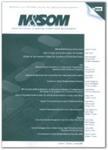-
作者:Chandrasekaran, Arayind; Senot, Claire; Boyer, Kenneth K.
作者单位:University System of Ohio; Ohio State University
摘要:This research investigates the effect of process management on clinical and experiential quality. Clinical quality measures hospitals' performance on patient safety, i.e., adherence to standards, whereas experiential quality relates to patient centeredness, i.e., responsiveness to the needs and preferences of the patient. Drawing from the organizational learning literature, we argue for a trade-off between clinical and experiential quality as hospitals emphasize process management. We also stu...
-
作者:Singh, Diwas K. C.; Staats, Bradley R.
作者单位:Emory University; University of North Carolina; University of North Carolina Chapel Hill
摘要:One key driver of improvement in surgical outcomes is a surgeon's prior experience. However, research notes that not all experience provides equal value for performance. How, then, should surgeons accumulate experience to improve quality outcomes? In this paper, we investigate the differential effects of focal and related (i.e., tasks similar to, but not identical to, the focal task) experience. We open up the black box of the volume-outcome relationship by going beyond just dividing experienc...
-
作者:Jiang, Houyuan; Pang, Zhan; Savin, Sergei
作者单位:University of Cambridge; University of Pennsylvania; Lancaster University
摘要:In recent years, the performance-based approach to contracting for medical services has been gaining popularity across different healthcare delivery systems, both in the United States (under the name of pay for performance) and abroad (payment by results in the United Kingdom). The goal of our research is to build a unified performance-based contracting (PBC) framework that incorporates patient access-to-care requirements and that explicitly accounts for the complex outpatient care dynamics fa...
-
作者:Luo, Jianzhe; Kulkarni, Vidyadhar G.; Ziya, Serhan
作者单位:University of North Carolina; University of North Carolina Chapel Hill
摘要:We consider an appointment-based service system (e.g., an outpatient clinic) for which appointments need to be scheduled before the service session starts. Patients with scheduled appointments may or may not show up for their appointments. The service of scheduled patients can be interrupted by emergency requests that have a higher priority. We develop a framework that can be utilized in determining the optimal appointment policies under different assumptions regarding rewards, costs, and deci...
